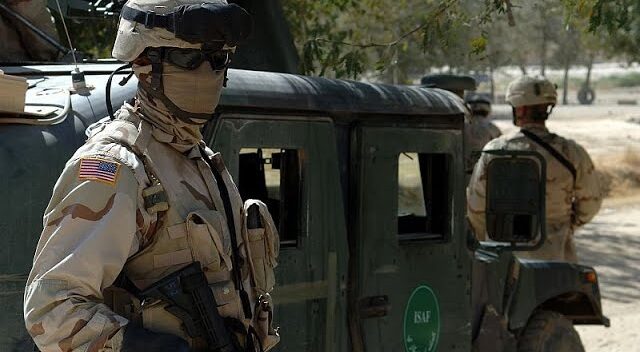US defence Secretary Lloyd Austin confirms separate compounds for Russian and American troops at Niger’s Airbase 101
In a recent development that highlights the growing geopolitical tension in West Africa, US Secretary of Defense Lloyd Austin has confirmed the deployment of Russian security forces at Airbase 101 in Niamey, Niger. This base also hosts American troops, although the two forces are stationed in separate compounds with no inter-access.
The confirmation came during a press conference in Honolulu, where Austin reassured that the Russian personnel do not have access to US forces or their equipment. This situation unfolds against the backdrop of increasing Russian military engagement in Africa, described by Kremlin spokesperson Dmitry Peskov as part of Russia’s broader strategy to develop ties with various African nations in all sectors, including the military.
The presence of both Russian and American troops at the same airbase is particularly noteworthy given the recent political shifts in Niger. Following a coup in July last year that ousted the democratically elected President Mohamed Bazoum, the new junta has reevaluated Niger’s international alliances, significantly impacting its relationships with Western nations. Both the US and France have faced requests to vacate their bases in the country.
This geopolitical shift comes at a time when Russia has been actively rekindling Cold War-era relationships in Africa, often offering what are described as “regime stabilization” packages through entities like the Wagner Group, a notorious private military company. The juxtaposition of US and Russian forces at Airbase 101 serves as a stark symbol of the complex and evolving power dynamics in the region.
Ikemesit Effiong, Head of Research at SBM Intelligence in Lagos, remarked on the situation, indicating that West Africa and the Sahel are becoming significant geopolitical fault lines. He predicted that the region’s political volatility and economic challenges would lead to frequent shifts in allegiance between Western and Russian influences.
Meanwhile, the US military has relocated some of its forces from Airbase 101 to Airbase 201 in Agadez, a facility built by the US at a cost exceeding £80 million. Since 2018, Airbase 201 has been pivotal for US drone operations targeting Islamic extremist groups like ISIS and Jama’at Nusrat al-Islam wal Muslimeen.
The strategic realignment by Niger’s government has heightened concerns in Washington regarding the potential expansion of jihadist activities in the Sahel, especially in the absence of Western-led counterinsurgency efforts. The request for US troop withdrawal came after discussions in Niamey about the anticipated arrival of Russian forces and concerns over Iran’s interest in Niger’s uranium resources.
This complex tableau of military presence and diplomatic manoeuvres underscores the intricate and often precarious balance of international relations in one of the world’s most politically sensitive regions
